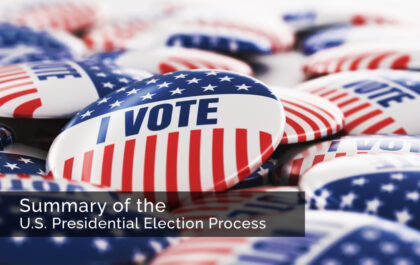When you have your own dental practice, you will have various agreements with your employees. You will hire many of your choices, such as the front office staff.
You will also hire hygienists and associate dentists through an employee agreement. You must be sure your employment agreement is lawful and has provisions safeguarding you and your employee. Before you make dental employees sign on the dotted line, click here to learn more about employment law for dental practices.
What you need to know about employment law for dental practices
When you hire an employee in your dental practice, you must enter into an employment agreement t. These agreements usually contain employment conditions, hours, duties, salary, etc. In brief, you and your employee must mutually settle on the job’s condition. The agreements can be in written, oral, or implied form.
Types of employment agreements
- At-will contracts
In the United States, most employees have at-will contracts with their employers. The agreement means that the employer can terminate their employees without giving any warnings or explanations until the dismissals do not violate any discrimination laws. But your employees can even quit whenever they want under this agreement.
Almost every state follows this type of agreement in many professions, but skilled labor and education have unions that dictate their employment terms and offer protection from being terminated. You may have some dental practitioners and special staff with written contracts, but most dental practice employees are categorized as at-will.
- Oral contracts
It is one of the most informal agreements one can have between the employer and the employee. Both of them simply have to agree to terms without any documentation. They have to trust each other to follow their commitments. Usually, this type of agreement is tough to implement because there are no written records or proof of the agreement. The only exception could be a third-party witness.
- Written contracts
Dental practices often have written contracts for dentists and associate doctors. Most of them are viewed as independent contractors, and at-will contracts are inappropriate for their positions.
A written contract in the dental industry includes the agreement’s details to prove that it is lawful and binding by both employer and the employee. As an employer, you will always need to possess a non-compete clause so the employee leaving your employ cannot shift to a competitor and bring along patients with them. The practitioner will want their duties, benefits, and salary to be spelled out in detail to clarify misunderstandings.
Related posts
When was the first presidential election in the US?
The election process in the world’s most powerful nation, the US, has come a long way. Various amendments have been made to the Constitution that allowed black men, white women and other disadvantaged groups to participate in the elections. Further amendments during the 60s and…
Tips & Trick For Healthy Glowing Skin
Lorem ipsum dolor sit amet, consectetur adipiscing elit. Nam laoreet, nunc et accumsan cursus, neque eros sodales lectus, in fermentum libero dui eu lacus. Nam lobortis facilisis sapien non aliquet. Aenean ligula urna, vehicula placerat sodales vel, tempor et orci. Donec molestie metus a sagittis…
My Fight With Depression. Concussions
Lorem ipsum dolor sit amet, consectetur adipiscing elit. Nam laoreet, nunc et accumsan cursus, neque eros sodales lectus, in fermentum libero dui eu lacus. Nam lobortis facilisis sapien non aliquet. Aenean ligula urna, vehicula placerat sodales vel, tempor et orci. Donec molestie metus a sagittis…
Top 10 most visited tourist places in the world
Lorem ipsum dolor sit amet, consectetur adipiscing elit. Nam laoreet, nunc et accumsan cursus, neque eros sodales lectus, in fermentum libero dui eu lacus. Nam lobortis facilisis sapien non aliquet. Aenean ligula urna, vehicula placerat sodales vel, tempor et orci. Donec molestie metus a sagittis…
How Digital Health Technology Is Beneficial?
Digital health revolves around the usage of diverse technological platforms including mobile health, teen health, configurable remote patient monitoring, etc to improve the connection between the patients and the doctors. Across the healthcare system, the horizon and scope of digital health have helped create opportunities…
How Latest Farmtrac Tractors are Improving Farming in India?
India mostly relies on farming, and a large part of the population depends on it for their livelihoods. Recently, there’s been a big shift towards using modern farming techniques and machinery to make farming more productive and efficient. A good example of this is the…
Dispelling Myths: Demystifying Rx Waste and Expiration Dates – WasteX Pharmaceutical Waste Disposal Separates Fact from Fiction
The specter of “expired” medication looms large, conjuring images of potent chemicals wreaking havoc on water sources and ecosystems. But before you panic toss that bottle of pills, let’s delve into the truth about pharmaceutical waste and expiration dates, separating fact from fiction. At WasteX…
Sustainable Living in Memphis: Green Initiatives and Eco-Friendly Hotspots
Memphis, a city known for its rich cultural heritage and vibrant atmosphere, is increasingly becoming a hub for sustainable living. As environmental awareness continues to grow, residents and businesses in Memphis are embracing green initiatives and fostering eco-friendly practices. Let’s explore the city’s commitment to…
Today's pick
Hot topics
Stay connected
Meet the Author

Gillion is a multi-concept WordPress theme that lets you create blog, magazine, news, review websites. With clean and functional design and lots of useful features theme will deliver amazing user experience to your clients and readers.
Learn moreCategories
- Animals (7)
- Apps & Softwares (8)
- Automotive (8)
- Beauty (8)
- Business (141)
- Cars (12)
- Cartoon (3)
- Cook (4)
- Cooking (1)
- Design (8)
- Economy (6)
- EDUCATION (25)
- Entertainment (16)
- Fashion (23)
- Fitness (2)
- Food (16)
- Gaming (51)
- Guide (20)
- Health (119)
- Home (52)
- Home improvement (12)
- Interior (3)
- Law (16)
- Life (1)
- LifeStyle (99)
- Marketing (5)
- Motivation (9)
- Movie (6)
- Movies (1)
- Music (3)
- News (8)
- Painting Art (1)
- People (15)
- Photography (7)
- Review (113)
- Services (7)
- Social Media (6)
- Sport (9)
- Sports (12)
- Style (10)
- Swimming (1)
- Tech (125)
- Travel (26)
- Uncategorized (17)
- Vape (5)
- Western (3)
- World (2)










